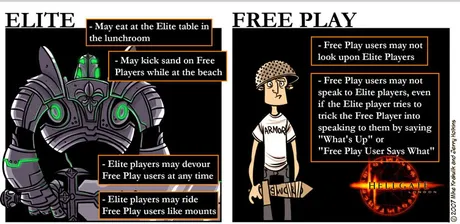
If there is a single game in crypto that isn't pay-2-win I'm currently unaware of it.
Post this unicorn in the comments below if you know of one.
Of course, the reason for this is quite simple:
Blockchain games are on the blockchain and blockchain devs want to incorporate their token into the game in order to give it utility and make it relevant. Of course every single pay-2-win game on every blockchain masquerades as "Play To Earn" (P2E).

The problem with this masquerade is multipronged.
-
To start it is extremely disingenuous. You will not be able to find a single blockchain game that admits that it is pay-2-win. Not a single one. Every single one of them will tell you they are play-2-earn. I think the reason for this is fairly obvious. Play-2-earn sounds a helluva lot better than pay-2-win. It's marketing 101.
-
Especially with recent advancements in AI, creating a play-2-earn game is basically impossible. Sybil attack via botting and multi-accounts always turns out to be a massive threat no matter how the game's mechanics have been juggled around. Gamers have been successfully cheating at games since before there was a financial incentive to do so. Crypto increases this incentive by a thousand fold.
-
It traps developers into a box. Blockchain game developers are forced to regurgitate the same tired mechanics over and over and over again because they are trapped in a box of their own making. Because they've decided in advance that the game has to be "play-2-earn" using a native token: the options for what the game can actually become are comically limited.
-
All pay-2-win games lack any and all strategy. No matter how good any player is at the game: they aren't going to beat someone that spends ten times as much money on the game. They're going to lose every time. Every single blockchain game is rigged in this way. Whoever spends the most: "wins". Of course this makes all blockchain games boring, tedious, and predictable, so in reality everyone loses.
-
All models lead to comic hyperinflation. Because every single one of these games is open to any account that wants to play, hyperinflation is a guarantee. In fact, the better the game is and the more people play: the more hyperinflation will occur by design. More accounts means more tokens minted. I mean sure the developers could just cap the emission rate of the token to whatever they want, but that just doesn't seem to be a thing that actually happens in practice because it would choke new players entering the game and give even more advantage to the ones who got in early, which would end up being an even bigger problem.
-
The games aren't fun. Nobody plays them because they are fun: they play them because they are interesting and there is a token attached to them with monetary incentives. If and when the token crashes to zero there is very little reason to keep playing the game. This creates a looming threat of death-spiral across the entire industry.
-
CCGs are inherently pay-to-win If the game has NFT cards that you can buy and sell on the open market it's almost impossible to escape the pay-to-win nature of the game. The only way to escape it is to have a deck at the top-end of the meta that often has a lot of valuable cards in it. Looking at non-crypto games like Hearthstone and Magic The Gathering it's not too difficult to build a top-end deck on a budget. Try doing that on a blockchain game and it will surely cost multiple thousands of dollars, even though the game itself isn't nearly as good on an objective level. Meanwhile, on Hearthstone you could max out a very cheap and good Hunter deck for free just by grinding out daily quests. It's a difference between night and day.
-
Players are apathetic. Most players do not demand better because most players just want to make some money and extract value from the game. Even worse, most lie to themselves and others and claim that they do play the game for fun (usually after the token price collapses and they are mentally justifying their HODLing strategy). They don't care about things they should care about and often don't understand the problems we are facing with this marriage of blockchain and gaming. It is quite a new industry after all. We'll get there.
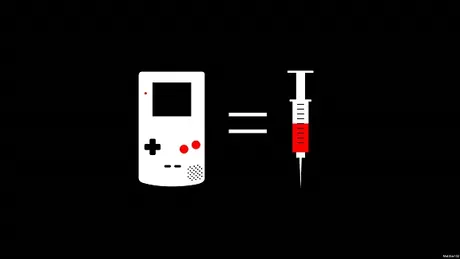
It's pretty ironic that crypto was supposed to be this bastion of open-source development when 99% of the projects look like cash-grabs even on the surface. Where are all the open-source devs who are willing to work for free to build cool applications or hack existing code for the greater good?
Most of them are still doing their own thing and not touching crypto with a ten foot pole because most of these old-school open-source devs take a look at crypto and correctly assess that what they are seeing is exactly the opposite of what they stand for. I mean I have to assume they'll come around eventually but we're gonna have to build something that actually gets their attention. A real innovative solution rather than 'innovation' and 'disruption' as cliché marketing buzzwords.
So what are my ideas to fix this problem?
Ah well, I've been talking about these things for years. 2018 even. So on a very real level I'm actually pretty annoyed with myself. Why haven't I built a single thing yet? Ideas are like assholes. Everyone's got um and they're usually full of shit. Too many chiefs, not enough indians. Everyone seems to like to brainstorm ideas but the list of people actually bringing those ideas to life is woefully short. At the end of the day ideas can only go so far, but also ideas are all I have. This is a blog after all.
Less is more
Especially within the crypto industry where there aren't nearly enough devs to build this stuff out, a small idea that can be implemented relatively quickly without a lot of hassle tends to be better than even the best big ideas that require a full fledged team years to complete.

What about AI?
Interestingly enough, while AI advancements might make it easier for exploiters to Sybil attack a game economy, there is also a lot of promise in that AI can also be used to actually build the game and create content. Never in my wildest dreams did I think I would ever be able to create a cool frontend for a game, as my focus has always been more about how things work on the backend. I always assumed that anything I built would look like trash unless I had the resources to hire frontend devs to help work on the project.
Now the landscape and environment looks completely different.
I've always been talking about the need for Hive to provide more jobs that require less skill. Blogging was a great prototype and example of how this could be done. Now crypto users don't need to know how to code to create value. While many on Hive seem to think that blogging and quality content are the end of the story, I believe I'm more correct in thinking that it is just our floundering beginning. The origin story of this network is rooted in high-value long-form posting, but we can evolve into so much more.
In March I wrote this post about AI and how we shouldn't necessarily be so adversarial against it. When I pushed the publish button I had no idea how much shit I had just stepped in. I got a lot of pushback from this post, which is understandable. Nobody wants Hive to turn into an auto-generated content farm of AI garbage. This is a fair assessment.
In fact not shortly after I wrote that post I 100% downvoted an account twice for using AI to write comments and then lying about it when they got called out. Seeing that kind of blatant deception on the platform I call home was quite enraging, and I immediately understood exactly why I got that kind of pushback on my "no big deal" AI post. Considering I've only issued like 5 downvotes in the past 3 years, it's a pretty big deal, even if I didn't actually take away any rewards and 'only' reduced the account's reputation down to 8 by downvoting zero reward comments.

However, AI within the context of in-game content generation could take on an entirely new meaning and sense of real value. This is somewhat what I was trying to convey in my other AI post but perhaps failed on that front. Imagine if you needed to create lore and background stories for an RPG. In a big game like World of Warcraft you'd of had to hire people just to flush out the story. Now with AI prompts I imagine something like this could be accomplished quite easily. It might not be the best work ever but still sometimes the content that AI can generate with the right prompt is absolute gold.
It also allows us to set the theme.
For example lets say we created an RPG and wanted the lore to be like The Lord of the Rings. All we have to do is remind the AI on every prompt that the style we are looking for is Lord of the Rings and the results should be good enough that small changes would only be needed to get exactly what we wanted. Setting the theme on art generation would be just as easy: no matter what the original art looked like it could be pumped through an AI filter to make everything look cohesive and uniform. It is in this way that AI generated content can be used, not to displace an existing workforce, but to create content in places that would have never existed without this tool.
Honestly I didn't mean to talk about AI so much in this post but frontend development is exponentially harder than backend development especially when we are talking about the biggest titles in gaming. Graphics engines and 3D modeling are very difficult and time-consuming. With AI moving at this pace these barriers to entry may become trivial within a matter of years.

Picking the right genre
Personally I'd like to see some actual competitive strategy games developed on blockchain (hopefully Hive). Again, if it's possible for an opponent to buy an in-game advantage, that ruins the entire game. This creates a conflict of incentives. On the one hand developers want to build a game that uses a token within a WEB3 ecosystem, but at the same time doing so seems to undermine the entire point of the game.
Luckily LoL already solved this problem.
League of Legends is a game I bring up quite often because it was one of the first completely free-to-play games that was able to earn a mint. How did they do it? Skins. Sure, most people aren't going to pay for a free game, but some will. There are even a certain percentage of players who will pay thousands of dollars on skins. Yes, that percentage is low, but it's more than enough to make up for all the ones who don't pay on the average.
This leads me to wonder why blockchain game devs have such tunnel-vision when it's already been proven that creating a strategy game without pay-2-win mechanics is easily possible. If LoL players are willing to spend thousands on skins that aren't even NFTs and can't even be traded on the open market, imagine how much hype there would be if you could?
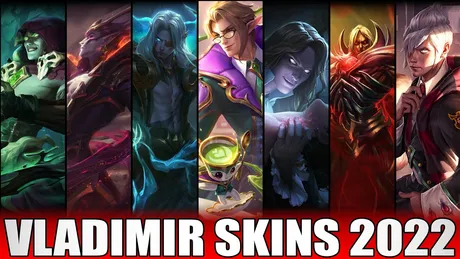
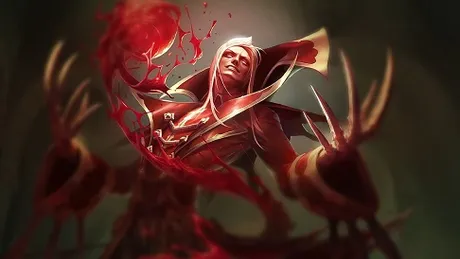
What exactly is a skin?
A skin is solely cosmetic. It does not give you a bonus in-game: it just makes the character (and perhaps their abilities) look different. That's it! And people love them. Even I bought a skin once for $20. How crazy is that? Doesn't need to make sense because it works. Logic be damned. People like diversity and uniqueness.
So essentially the main way to create strategy games on crypto should revolve around skins as NFTs if devs can't come up with another solution that avoids pay-2-win. Even if they do come up with some other innovative solution that incorporates WEB3 while still managing to avoid pay-2-win... skins honestly should still be implemented on top of that. It's free money and value, and it lowers the bar for development.
On a game like LoL, the only ones designing and profiting off skins are the developers of the game. However, in WEB3 anyone will be able to create a skin and sell it on the open market. The creator will have full control of how many of those NTFs exist and what the mint price is. If they want to create a unique skin that only one person can own that's a valid strategy. Some may choose to mint 1000 of their skins to balance the supply/demand ratio. Some may choose no limit and create infinite skins at a fixed price (perhaps with or without a time limit on the sale). There are many options to consider, but the most important one is community control of the assets.
When players become employees
Ultimately this is where the entire WEB3 industry is going. Play-2-earn is a fantasy that does not exist, and never needs to exist. People get paid to WORK. People get paid to create value, and playing a silly P2E game has no value (yet). I'm not saying it would be impossible to gamify the work and content-creation business, but it would be pretty difficult. I imagine all the other things I've already discussed would come long before any kind of breakthrough like that.
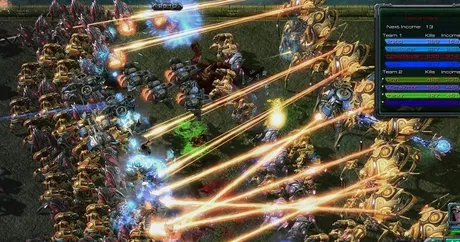
Example genre
One of the best examples I can think of in terms of simplicity while still maintaining a semblance of strategy is the tug-of-war gaming model. It's kind of like the more popular tower-wars genre (which for the most part isn't competitive) but instead of creating towers and killing NPC units, both you and your opponent create buildings. Those building create units in an automated fashion and the units are sent to blindly attack the opponent. Whichever side can snowball big enough to kill the other's base wins.
The screenshot above is a free game on the Starcraft 2 arcade called Nexus Wars. You could download it and play it now if you wanted. I've played it enough times to know that it is extremely imbalanced and could really use a lot of changes, but then again balancing strategy is very difficult, which is perhaps why very few even attempt to build such a game.
LoL itself is a MOBA (Multiplayer Online Battle Arena) which is actually a genre that has tug-of-war elements to it (three lanes all with automated mob spawns) but this ends up being quite complicated in addition to the fact that games take 30-50 minutes to complete. It's quite the grind and I believe shorter competitive games are sorely needed (like 15-20 minutes on average or less).

Final note
There is one common thread between all pure strategy games:
- Everyone starts the game with the same assets and a clean slate.
- No strategic advantage can be paid for in advance.
- The winner is declared and the game ends.
- All strategic progress of the winner is subsequently lost and reset.
I don't think this game exists on blockchain yet.
Am I wrong? The entire market is hanging wide open and no one is reaching for it. Instead opting to implement pay-2-win and market it as play-2-earn. An entire spectator sport is being ignored.
Conclusion
Thus far the open-source nature of crypto and WEB3 has been thoroughly infested by greed and subsequent disappointment. Every single blockchain game is pay-2-win, and it shows. Until devs learn to stop implementing these boring mechanics they'll continue to hash out the same tired narrative of allowing those with the most money to win while everyone else scrambles over each other. This assumes that Sybil attacks and rent-seeking behavior haven't gutted the entire economy of the system already.
AI has a huge part to play in content creation, but we need to focus more on using it to build things that could have never existed before rather than trying to use it to displace the current job market. I believe this is going to be a critical distinction going forward especially as it applies to the WEB3 gaming industry.
The economics behind skins as NFTs is already a proven model that works, yet no one seems to have correctly utilized them in this fashion on a WEB3 system. This creates a huge vacuum in crypto gaming where the template should be, and I surmise the value being left on the table is surely in the billions across the board. Hell, even Riot Games is worth $2B by itself without the help of crypto.
When it really comes down to it: gaming devs need to focus less on the token and how to get their bags to moon and more on making a game that people actually want to play. The overriding directive dictating that devs must heavily incorporate the token directly into the strategy of the game itself leads to completely unfair mechanics that give all the victories to the rich early adopters.
We can do better, and honestly I think it's only a matter of time before that happens. The open-source nature of crypto makes it easy to clone templates that have proven themselves in the field. We simply need more templates and code to fork to make that a reality. Once again, our lack of infrastructure is a huge burden to the entire space, but the only way around this is hard work and the passage of time. There are no shortcuts.
Return from Escape Velocity: Abandoning the Global Pay-2-Win Gaming Model to edicted's Web3 Blog
